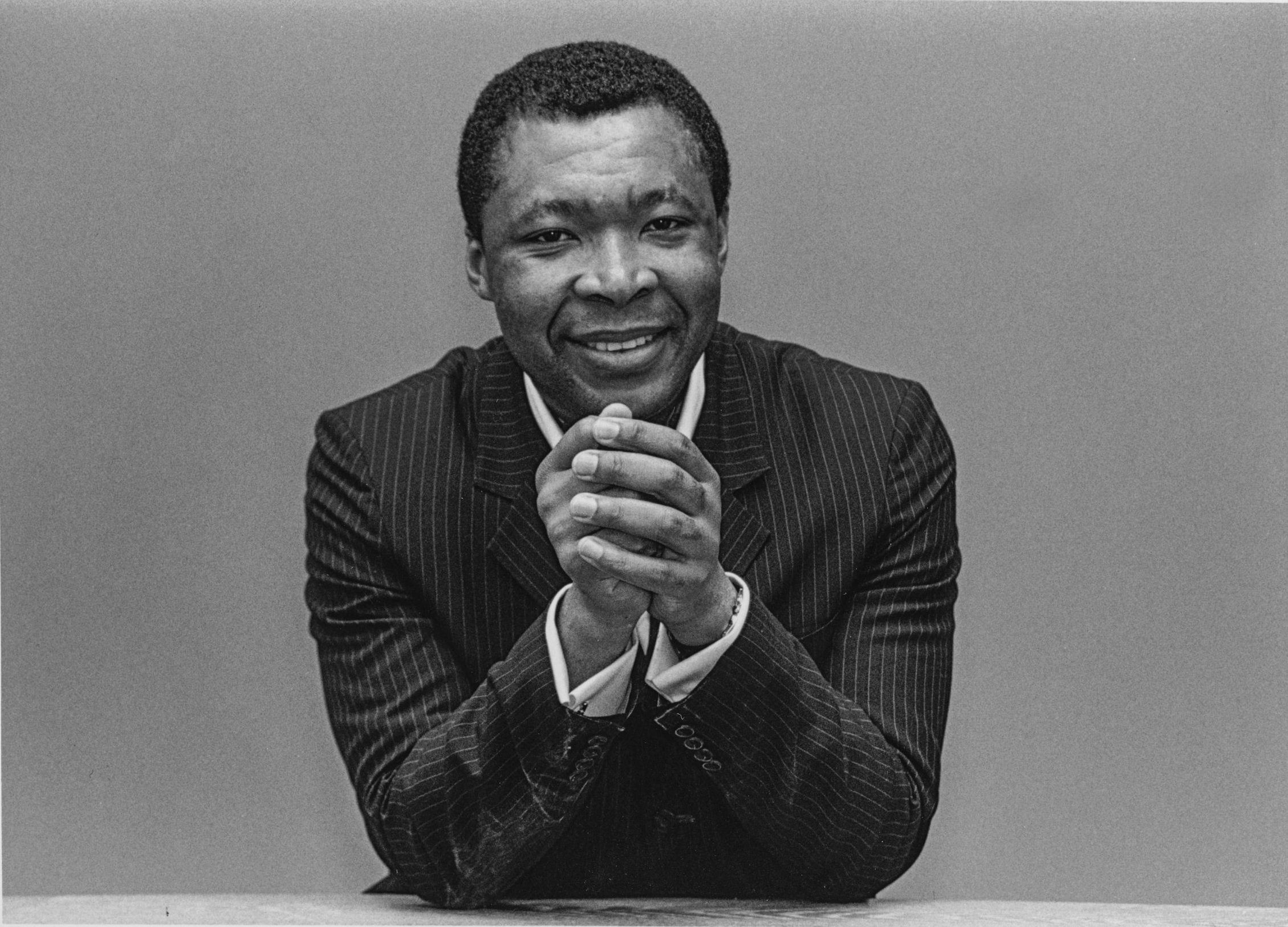Platform6documenta fifteen
The Past in the Present – A Conversation between Co-Curators and Team of Documenta11 with Artistic Directors of documenta fifteen – Part 1
CloseThe Past in the Present – A Conversation between Co-Curators and Team of Documenta11 with Artistic Directors of documenta fifteen – Part 1
The team behind Platform6 Project (Mark Nash, Ute Meta Bauer and Angelika Nollert) met with the members of ruangrupa (Farid Rakun, Reza Afisina, Ade Darmawan), curatorial collective behind the documenta fifteen. The conversation took place on zoom on August 27th, 2021, with Mark Nash joining from London, Ute Meta Bauer from Venice, Angelika Nollert from Munich, Farid Rakun from Jakarta and Reza Afisina and Ade Darmawan from Kassel.
Edited by Vladimir Seput, UC Santa Cruz
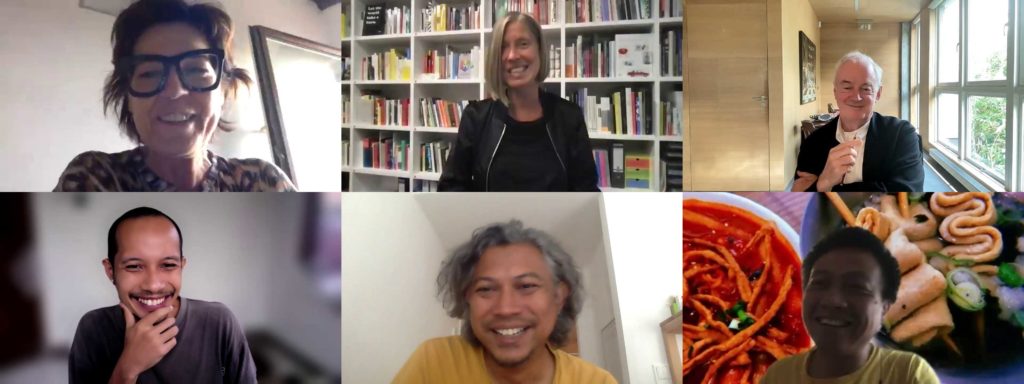
PART 1
Mark Nash:
The group of myself, Ute and Angelika, part of the Platform6 project were very pleased to initiate this conversation with members of the ruangrupa as a way of complementing the Platform6 website that we're developing. Of course, ruangrupa have been developing a lot of online conversations and this gathering will hopefully be useful for all our future thinking.
Ute Meta Bauer:
Mark and I just were discussing our Documenta11, and Mark highlighted that we had very little presence from Southeast Asia, beyond tsunami.net (which was Charles Lim Li Yong and Woon Tien Wei, who now runs the Post-Museum), they were our youngest participants at the time. Of course, the post-colonial constellation was so important for Documenta11, and for Okwui. In that respect Mark is right because, beyond Thailand, the whole of what is today called Southeast Asia has been colonized, and this kind of discussion of that region wasn’t present at the time. Of course, ruangrupa is more focused on something that is forward looking, trying to find a participatory model in a society and having more presence of a self-organised structures. I would like to hear more about it, does it happen because of the lack of infrastructure and governmental support (as we know, democratic society such as Germany has a mandate for support, we can see that the documenta in Kassel is paid by the public funds)? Is it a result of a lack of that infrastructure or is it deliberate? In a sense that is purposely countering or bypassing support in a democratic country such as Indonesia in order to focus on societal processes of education and on agency as a counter perspective to find a way of stronger participation of people, citizens with a different voice.
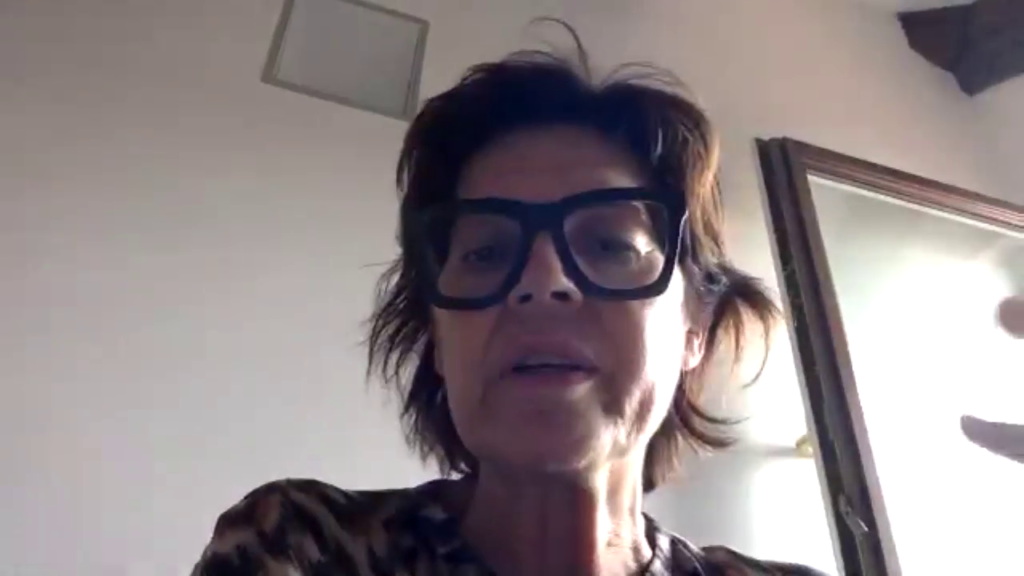
It also relates to the important discussion that we had at the time around Homi K. Bhabha’s Location of culture, Gayatri Chakravorty Spivak's Can the Subaltern Speak? or Édouard Glissant looking into archipelago and thinking beyond nation states and seeing the post-colonial constellation still as a colonial constellation.
Farid Rakun:
There is a lot to unpack. When we think of Documenta11, we can always experience it only in retrospect. As a collective, we weren’t there so we look at it and we try to understand it after the fact. We never really problematised the fact that Southeast Asia wasn’t as present then. Maybe curators from Thailand, or artists from Singapore or Vietnam would give you a different answer to it but for us in Indonesia the non-existence or the non-representation of Indonesia in documenta’s past editions became visible only after we got selected for the documenta fifteen edition.
I think that the understanding of becoming global, that relates to Documenta11 and the early 2000’s, we know that being global, instead of being represented somewhere else, means more bringing people together and creating conversations in Indonesia itself. Of course, if we are talking about nation-state. Many time, including with us in ruangrupa, we don’t really see the nation-state as something could be useful for us. For sure, we will not be representing Indonesia.
Ute Meta Bauer:
Yes, it was same with us. We are not Venice Biennale, we never wanted to represent anything. We don’t want to show artists or present practices from places where we haven’t been in person. Therefore, certain areas felt left out, like Eastern Europe. But we didn't travel there because we were in Africa, in the Caribbean, in India. Mark travelled to Teheran for the film festival.
It was important for us to understand the sense of place and our goal wasn’t to represent.
Mark Nash:
Documenta11 was seen or referred to as a global exhibition but there were lots of white spots because it wasn't set up, it didn't intend to be global. And the question that comes in now is not just of the post-colonial constellation but also of the Post-Cold War. If one wants to understand what was going on in certain regions of the world, such as Southeast Asia, then the Cold War struggle against communism was one that was really determined, was formative in Indonesia where you had a dreadful massacre of the Communist side of Indonesian civil society. On the one hand Documenta11 was seen as introducing artists from different parts of the world but as Ute says it was because we were interested in their practices for various kinds of reasons. Eastern Europe was already quite well researched by other biennials and exhibitions. And we also made a kind of perverse but interesting decision not to really focus on Germany, where we were either because, in a sense, that wasn't our mission was to be informed by cultural studies, the post-colonial discourse and so on, so we were bringing that to there. The question this leads into was whether ruangrupa as a group thinks of itself as being formed by particular critical and theoretical discourses or whether it's a mix of that and the collective and collaborative practices the lumbung represents? Because there are different groups that are brought together in the project.
Farid Rakun:
Of course, we were, or we still are a product of the Cold War. The New Order was its product and then it crumbled which caused a sort of euphoria. That’s not the only reason for creation of the collectives but it’s an important one. It is not only us who got together, but also with farmers, fishermen, all these people have their own movements. A lot of them can be understood as containing collectivity in one way or another. And we are clearly part of it. As we were getting older though, the question "Is this enough?" arose. Where do we take that euphoria to? Learning from others as well, younger than us, we can see that for them there is still something in collective organisation, so we are trying to see what it is, we keep looking for it.
Continuing with what you said, Mark and Ute, we chose to work with people we are working with right now even though it’s not a geographical representation, but we are looking for a practice we can learn from. Some of the practices overlap with ours but we are more interested in seeing how they do things differently. I don't know whether we're fortunate, or unfortunate, maybe it's a mix of both, but the pandemic became big for us that we're working with right now, trying to do things differently somehow got more weight.
Ute Meta Bauer:
I think that the pandemic made those things very present, and the keywords that you are working with, such as generosity, humour, or sufficient which are everyday conditions not just of the arts but of life, and there may be a better understanding of those because of the pandemic. What you are doing is important, we went to the world with different platforms for our Documenta11, to Delhi, Saint Lucia, Lagos, Berlin, Vienna but we separated the exhibition and we said that we don’t want to deny that there will be an exhibition anchored in Kassel, a place of an institution for documenta and then we had different platforms. If I understand it correctly, you are doing something different. You also go out in the world, but those places are where the practices are actually embedded, and I think that’s a very different approach. I hope you can say more about it in that respect. It feels like you are empowering those practices instead of them being chosen to be seen by the selector. You give this authority to your initial partners and then they act upon it in their context.
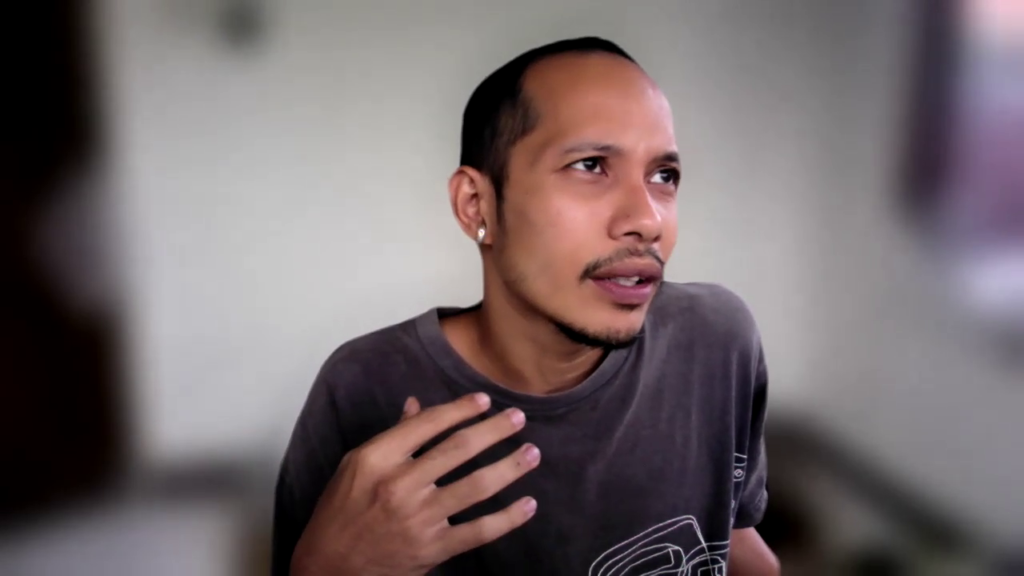
Farid Rakun:
It’s exactly like that. We don’t want to make documenta fifteen only ours. That’s why we extend invitations to people who work with us in the artistic team. As Indonesian passport holders, there are some places that we couldn’t visit so we try to work with people who have practice and knowledge rooted in those places. Palestine is one of them and our interest in Kassel is also local in that sense. These fourteen lumbung members need to be locally rooted, that’s part of criterium, something we look into while deciding to work together. Some members have been living in Kassel for more than ten years. To root ourselves partially in Kassel as well and make Kassel one of the localities in the middle of the other ones. Then we enter conversation with those fourteen members to see how do they the agency in that local sense, what role should they play? There are, of course, different answers to that question. For example, QUESTION OF FUNDING from Palestine want to bring Ramallah artist and underline that the inclusion of Ramallah artist in documenta fifteen is not only because of the QUESTION OF FUNDING so they are not putting themselves above the artist they are inviting but this artist should be addressed as other documenta artists. Then OFF-Biennale want to continue their interest in Roma artist, they called RomaMoMA and their way of working, and the way they deal with the connections between artists and curators is a bit different than the one of QUESTION OF FUNDING. They don’t necessarily want to emphasize the inclusion of the artist but sustained, para-institutional effort that they are making, making a museum that is not a museum, a real but imagined space.
The understanding of local is also different from one place to another. INLAND sees themselves as already playing a role in extra-state so they are not really focused on Spain context, it’s much more about how villages and rural spaces in different places become more independent.
In some ways, we actually envy you because you had four platforms before the Documenta11 and then one hundred days in Kassel and we wish that we could also meet somewhere else, in different places, where different members are coming from. But we couldn’t. So we are trying to be honest and to work with the circumstances that we have right now. That’s also a reason why we are not postponing the documenta. The postponement has never been our preference. And this edition of documenta will be the one that was prepared (and hopefully only prepared) under Covid circumstances.
Mark Nash:
Because you have the different groups that together make your documenta project, you have these different configurations or senses of what is local and what is an intervention in a local situation, and how that may be resonant with different projects around the world. I think of an Indonesian musical instrument the gamelan and the resonances between different parts of that equipment, kind of sound resonance from different parts of the world from different projects, all coming together but all being different. It’s a bit of a rough analogy.
We were very much informed, as we were saying earlier, by this project of analysing the post-colonial, using the kind of conceptual frame of cultural studies, but wider than that. And we had a particular dialogue with the international art world I would say that we were clearly part of. documenta was clearly part of the international art world, but we were at the same time dissenting from its market-based logic. Not all documentas have done that, some of them were very celebratory around artistic production.
Ute Meta Bauer:
The starting moment of documenta after the Second World War was to reconnect the art to the global, after the Nazis excluded certain artworks as degenerated. So there was a large presence of abstract art, like Ernst Wilhelm Nay, in the early documenta versions as a way of reconnecting. Then in 1968 and after there were protests and demonstrations even from the artists who were part of the market, which existed already, artists like Joseph Beuys and his engagement through the Office for The Organisation for Direct Democracy or The Free International University. But then with Jan Hoet and the documenta IX in 1992, the exhibiton came closer to the market so documenta always reflected what was going on.
Global Conceptualism (1999) was a very important show to demonstrate that there were and still are gaps in the institutions, and that, even though the global collections exist, they are not present in museums. So even if our exhibition included the market, it was also presenting gaps, black spots of, not only discourses but of artistic practices as well.
We know that art also takes place outside of the museum, I come from an alternative place, Okwui is a poet but this documenta is different in a sense that is giving authority to non-institutional entities. It’s not social practices, you are not replacing social work but is about deepening the question Where is the place of culture? Who owns culture? For whom is it? Twenty years later, I think that the work of ruangrupa really expands those issues. Coming from the political science background, I think that Okwui felt that history needed to be corrected. The imperial archive cannot stand as it is. Mark worked a lot on Bandung so there was a focus on southeast Asia. Maybe you can say more about that, Mark, because you started to collaborate with Okwui early on, you worked on The Short Century (2001-2002), which shouldn’t be left out as a precursor to Documenta11. And The 2nd Johannesburg Biennale (1997) also played a crucial part here. In the post-War world, the colonial power still spoke loudly so a political correction was necessary to provide the ground for further documentas.
Mark Nash:
In some ways, that political correction formed the basis of our documenta and then continued to inform of, not so much contemporary art exhibitions, but existed as a reference point in a way that artists taught and explored within the Academy. We ended up shifting the terms of the debate.
At the same time, because of Okwui passing so prematurely, our decision to launch Platform6 was a way of not just honouring him but honouring the exhibition as well and reminding ourselves that the debates and discussions that we had twenty-five years ago are still important today, and, to some extent, have gotten marginalized again. It’s quite difficult to talk about the post-colonial outside of certain exhibition context. If you look at the writing of Stuart Hall, talking about When was the post-colonial? The fact is, we are still tied into it when we look at Afghanistan, we are being tied into 19th century occupation of Afghanistan by the British, for example. Nobody really wants to talk about those things. From a film background, I have been interested in a number of these questions which get articulated rather differently in the film space as opposed to the art space. One of the projects I'm working on is trying to connect those two debates because in some ways film embraced the criticality earlier than the art world. For example, Joris Ivens making a film Indonesia Calling in 1946 about the struggle in Indonesia, before the criticality visible in contemporary art later.
Ute Meta Bauer:
One mainly sees the exhibition catalogue from Kassel, but we shouldn’t separate it from the other books that have been published for different platforms. The embarking moment was eighteen months before the documenta, with the conference Democracy Unrealised (Platform1) in Vienna and you mentioned Stuart Hall who gave the keynote lecture Democracy at the Horizon for the inauguration, which is more relevant now than ever. We see the decline of democracy and the return of authoritarian rulers everywhere. And then, of course, there were other platforms as well, Experiments with Truth (Platform2) in New Delhi or Under Siege: Four African Cities (Platform4) in Lagos. All those questions are not off the table, but you in ruangrupa are approaching it in a very different way with your documenta. You are demonstrating already that things can be done differently, there can be more authority in the hands of the people. We were doing our documenta just after 09/11 and the religious wars were just boiling up. We also know that the West is often very ignorant of the different parts of the world, where there are different rules, a different set of understandings of a society, that one might agree with or not.
I think that ruangrupa is showing embedded practices that engage with the issues on a day-to-day level in the societies with the people living there, way beyond the art world. I think that is important to see that this is possible.
Farid Rakun:
I guess the point that we're trying to proof by experience, because the proof is always in the pudding for us, is that, instead of coming short in representation or the performance of activism, those things need to be practiced. We always underline that we want to explore what role can the institutions like documenta, museums, artistic institutions or even some educational institutions play in this, for these types of practices to sustain. Every context and every type of practice will answer to it differently. documenta’s valuable resource is the branding, spotlight, opportunity itself but a lot of practices don’t actually care about it. In their context for example documenta as such doesn’t ring a bell. Then the question also becomes What is documenta? What is the meaning of it? It’s not a walk in the park to make all the collaborators understand this. We intentionally want for cross-pollination to happen so we would like that each of the lumbung members understands the other one’s practice better. Not only to learn from one another but also to use one another because there are certain things that one is able and the other one isn’t.
It is really important to keep on listening your neighbours so to speak, to your new friend who is with you on the same boat. If we manage to do that, to make documenta fifteen a stop, not the only one, of our collective journeys, then our goal will be realised. Personally, I am very excited when I am imagining what could happen with this group of people after 2022. For example, similar to the way you are talking about it here twenty years after the Documenta11. We will hopefully be able to do what we weren’t able to do before, and the journey will be very new to us.
Reza Afisina:
I have been listening to your conversation and taking some notes. The main thing to point out is that we must engage with the things that are happening right now, even here in Kassel, and the challenge for us is how to be sensible to this particular approach that we have taken and the conversations that are going on throughout the whole Kassel ecosystem. It has been really fruitful so far and it generated a lot of conversation after we would show these particular processes to other communities. Each of our new friends here in Kassel has come up with their own initiative and those are now swarming with the method of knowledge about the way the documenta is now put in the process. For us, that’s really important, that those different connections are being established.
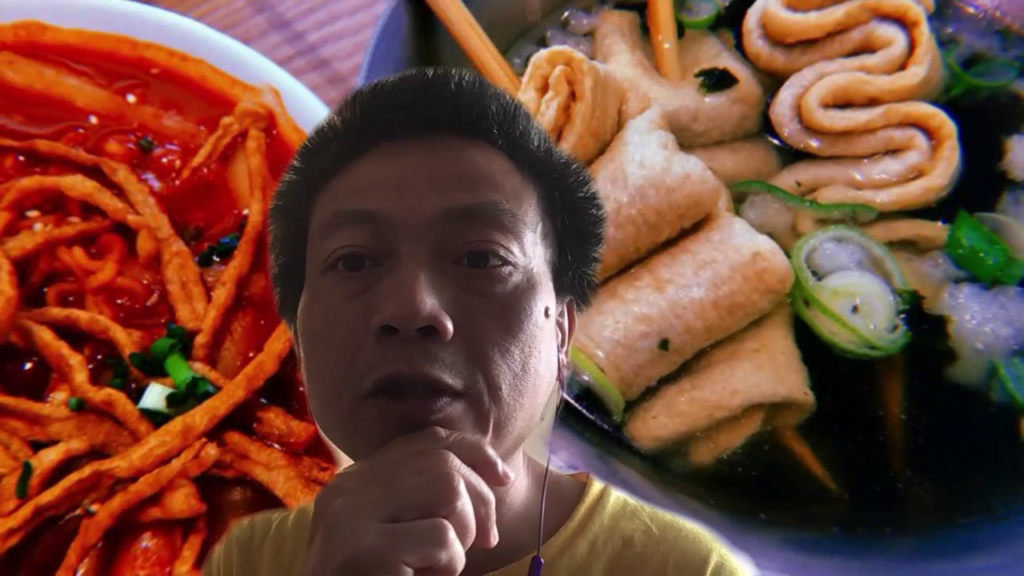
Ute Meta Bauer:
This is not your first big show, you were also in charge of Jakarta Biennale, so you didn’t just come out of the collective practice, and you aren’t separated from the art world. You are part of the system, but you also have a critically of the system, similar to us, even though the times are different. It’s important to mention how certain institutions are struggling with the changing world, it’s a very hard period for biennales and the documenta, with lack of support and this political climate. You were selected by a committee composed of the institutional directors, biennales, etc, and the fact that they chose your kind of practice tells about where they are standing today. What can they even do, what is even their freedom? We always talk about censorship, but the infrastructural freedom, even in a Western country, in full democracies, is very limited. And this is not something that is often talked about.
Okwui wrote to me when you got elected and said ‘Please don’t compare this’ because when he got selected and when he went into the room during the press conference on the day he was announced, there was silence, as if the bomb hit the room, seeing somebody of colour running the biggest authority on global art. Who is this who will do our documenta, What does legitimise him? Is he an art historian, does he run a museum? The times have changed I think that the public will endorse your documenta but the biggest misunderstanding might come from the artworld, and the critics who might question if this is art, and pose similar concerns. At the time, we also faced criticism regarding our platforms, questions such as "Why Nigeria?," or "Are you having a holiday in the Caribbean?" Adam Szymczyk brought it to Athens and those movements always raise questions of ownership and about art running away from institutions of authority.
Farid Rakun:
I will comment that through an anecdote. We divide ourselves and our work in different sections, different working groups with our collaborators and other members of the community: publications, economy, education, etc. One of the most attended ones is the working group called Where is the Art? That question has come up so many times from different sides, and it’s not new. But one of the most fruitful discussions in the working group is going somewhere else, beyond that simple question. Some don’t understand where we're coming from, the different cosmologists that we are coming from. If we want to be generous, then we have to re-explain.
Ade Darmawan:
Yes, even the question is problematic because it includes the fear in it. Since we’ve been living with those questions for twenty years, we don’t think that it’s going to stop with the documenta. Even in Asia, the question of authority of art is still huge. Building up the conversation is something that we are trying to focus on because at the moment all of the conversation is still with and through the documenta. How can we build conversations other than that and beyond it?
Ute Meta Bauer:
I agree with that, and I would just like to come back to the historical moment of Documenta11 and the moment around 09/11 which was such a shake up, to have the power, such a military force like United States attacked at its very core, on its own soil. We decided not to deal with it directly beside the first fifty pages in the exhibition catalogue to make it clear that we are aware this is happening.
We only had Touhami Ennadre who was directly dealing with that event, showing photographs about the people experiencing 09/11, in the corridors of the Binding-Brauerei. But at the beginning of the publication, we had fifty pages of the news about what’s going on in the world. It seems that the same story is continuing now with the Afghanistan situation and suicide bombers at the airport in Kabul. Moreover, young people in the UK or in the US have been joining organisations like ISIS, feeling excluded in the West, not sharing Western values. We cannot just ignore those issues, they are global, and they have major impact. On the other side, we have Black Lives Matter that is heavily impacting the art world as well. This division that comes with late capitalism and the question of access, of a voice, is not marginalised to certain regions, it’s global. I think that your documenta reflects upon those issues and tries to see are there some shared values that bring us together as people. I would like to hear more about that, about the sense of urgency that we all feel, and how do you deal with it through some of your initiatives, like the GUDSKUL (Contemporary Art Collective and Ecosystem Studies), encouraging shared agency around the globe with other entities?
Farid Rakun:
With us and our collaborators there is a certain scepticism, not believing in what the system, or the state can provide us. We don’t build our infrastructures just as a political act or a statement but out of necessity as well. That’s why we became a collective in a first place. Because of that, we are also seeing the limitation of politization of things, whether one is left or right or center. That’s not fruitful enough for us so we aim for not only an extra-state but also extra-political beliefs. In the GUDSKUL we are not united by one way of seeing politics and we are also aware that political beliefs change over time on an individual level. If someone was benign at one point, in ten years they might become more radical. But that doesn’t mean that they can’t work with those who have opposite political beliefs. It’s important to think about how can we build something together that can absorb those complexities instead of creating an us versus them situation?
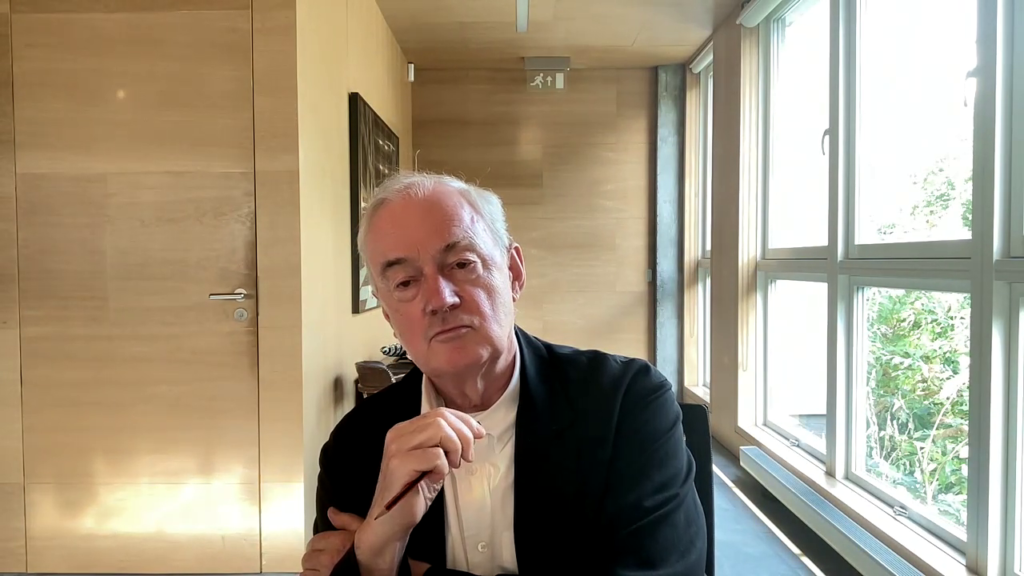
Mark Nash:
One of the things that comes out of Ute’s and Farid’s discussion is that there is a space created by these liberal democracies within which art projects can exist. It's not an either-or situation. There exists a very elaborate discourse about art, let’s say, in Russia, which is a form of dictatorship. Nevertheless, there is a question as to what is the role of political engagement? Your project sort of step to one side of that. Were there groups in your community that saw themselves as political actors that you could have engaged with or might think of engaging with in the post-documenta period? And some social movements, let’s say for the liberation of territory, could be connected to your project if it was to expand a bit in the future.
I was thinking of a film by Swiss filmmaker, which was set in Mindanao, and it concerned communist rebels in the jungle. It's quite poetic because these rebels had never been outside of this context, but they'd heard about Marxism and incorporated that into their practice, which in this case, was an impossible revolutionary practice. They get killed eventually and I think the filmmaker’s argument was that this could also be seen as an artistic project, just one that is very risky for the participants. It's an extreme example. Farid at the beginning mentioned the New Order period in Indonesia when it was more difficult to do the kinds of projects that you're doing now, and I am trying to think if the example of ruangrupa could be used as a form of liberation in other spaces.
To shift to a slightly different terrain, I think that Ute really spelled out very clearly the logic of the art world and the capitalized art market. The institutions seem to have more structural crisis now around audiences, finance, and the role of art. The whole of society is becoming aestheticized so every kind of social activity can be seen as a form of art practice. As Ute mentioned, the committee that chose ruangrupa obviously responded to the questions that were being posed in the wider community, and the questions that the museum directors have about the relevance of their institutions. It may be that one of the questions that will come up in the press conference and in the critiques afterwards becomes "Is this the end of art as we know it?" In some ways, I think it's quite good to be able to say, yes. Because we're privileged in different kinds of relationship and different ways of thinking socially. That may involve a different kind of art practices, and there were already exhibitions in the private sector which anticipate some of these movements.
TO BE CONTINUED
